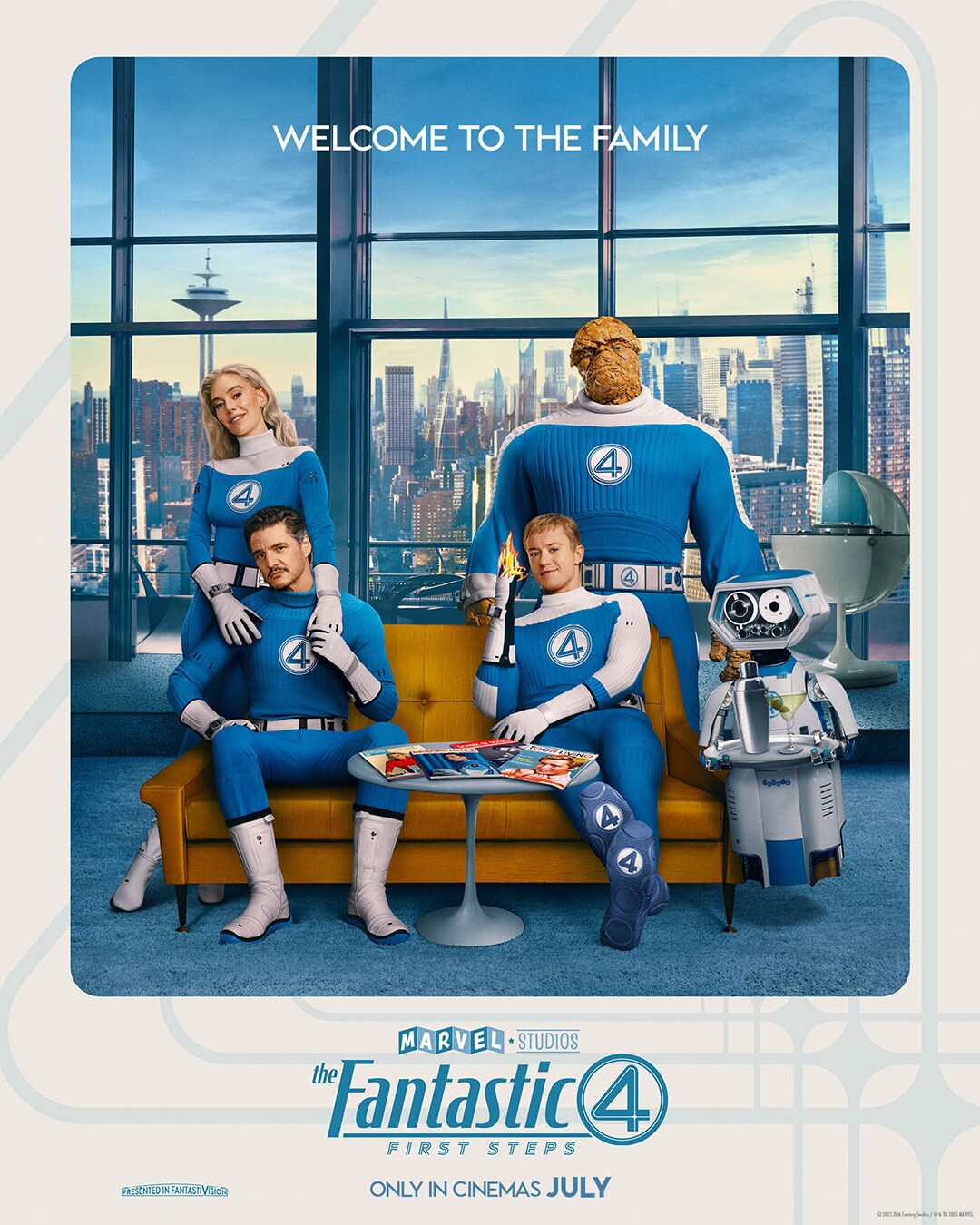If you’d told me at the start of 2025 that I would leave the theater humming a jaunty mid-century tune, debating whether Galactus is just hangry, and sincerely rooting for a stretchy scientist to fix dinner and save the world, I’d have asked for the name of whatever you were smoking. Yet here we are. The Fantastic Four: First Steps sneaks into the MCU not with a whimper but a “ka-boom” wrapped in a technicolor bow, and mostly sticks the landing.
Welcome to Earth-828 (a.k.a. Retro-Futuristic Paradise)
This is not your everyday glitzy, hologram-filled, camera-shake-for-effect superhero slog. Director Matt Shakman, fresh off WandaVision, leans into a mid-century design aesthetic so earnest that one half expects the Baxter Building interior to double as a Jetsons set. The color palette, the furniture, the sleek gadgets, all of it screams “someone put a fisheye lens on 1964 and gave it lasers.” The result is a visual identity that gives this Fantastic Four its own personality rather than forcing it to mimic the Avengers’ cool-guy swagger.
This aesthetic choice is bold because it could have easily felt gimmicky. Yet the film leans into it with confidence, building a world that feels cohesive and lovingly rendered. There are moments I caught myself just admiring a hallway or a gadget, which is half the battle won for a comic-book adaptation.
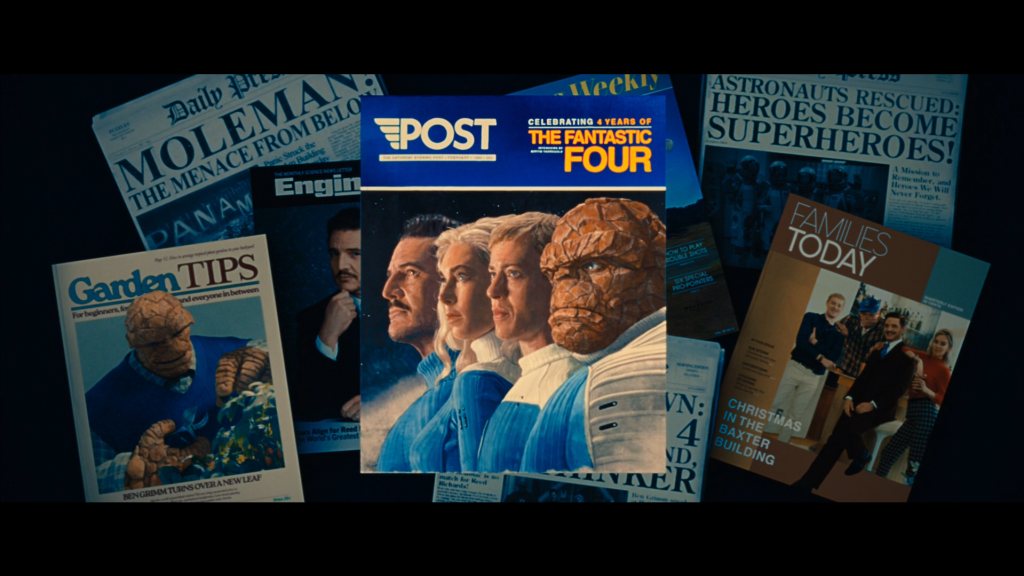
The First Family, Now With Extra Snark and Heart
Casting-wise, this feels like someone asked, “What if life put the Fantastic Four on a dramatic talk show instead of an endless CGI battle?” Because the interpersonal dynamics are its beating heart.
Pedro Pascal plays Reed Richards not as an aloof genius but as the kind of guy who’d carefully calibrate the salt in soup while calculating galaxies. His leadership is rooted in curiosity, not hubris. Vanessa Kirby’s Sue Storm is ushered in as more than a sidekick. She’s diplomatic, maternal, and morally blunt, and the film explicitly leans into how her pregnancy complicates cosmic stakes. Joseph Quinn as Johnny Storm surprises, being less snark cannonball and more complicated flame. He actually listens. He hurts. He laughs. And Ebon Moss-Bachrach’s Ben Grimm is the emotional ballast, the gruff, loving big brother who also just wants to punch things sometimes.
Their chemistry feels earned, which is rare in origin-adjacent superhero movies. You see them argue in traffic, reassure each other in crisis, crack jokes that land (mostly), and carry the weight of being a “family” whose fate isn’t just cosmic but profoundly personal.
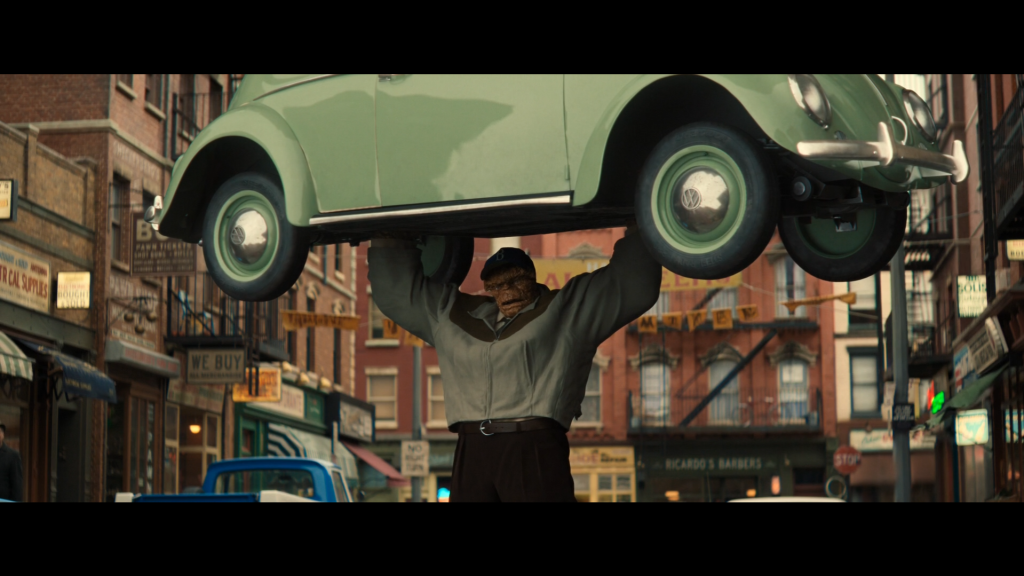
Plot, Cosmic Ambition and A Few Slip-Ups
The narrative is deceptively straightforward. Earth-828 is a world that’s already had about four years of the Fantastic Four doing their thing. But it’s not without threat. Galactus, ever hungry for planets, sets his sights on Earth, and uses the unborn baby of Reed and Sue as a bargaining chip. Silver Surfer is the herald, and the moral dilemma of “how far do you go to protect your family versus billions of strangers” is central.
The good news is that there’s enough cosmic spectacle for those who grit their teeth at CGI epics. And yes, Galactus does come across as a genuinely menacing presence, looming large as both concept and execution. You feel his shadow, his hunger, his inevitability. The frustration comes in the payoff: his final showing is intense, but it’s shorter than it deserves to be. Just when you’re fully buying into him as this unstoppable force, the film wraps things up a little too briskly. A few extra minutes of lingering dread and spectacle would have cemented him as one of Marvel’s most memorable threats. Silver Surfer’s arc feels compressed. And occasionally, the exposition leans hard on “tell, don’t show.”
Still, these are mostly blemishes on a cosmic canvas that otherwise sings. When the film leans into its themes of sacrifice, family, citizenship, and cosmic responsibility, it lands with surprising weight.
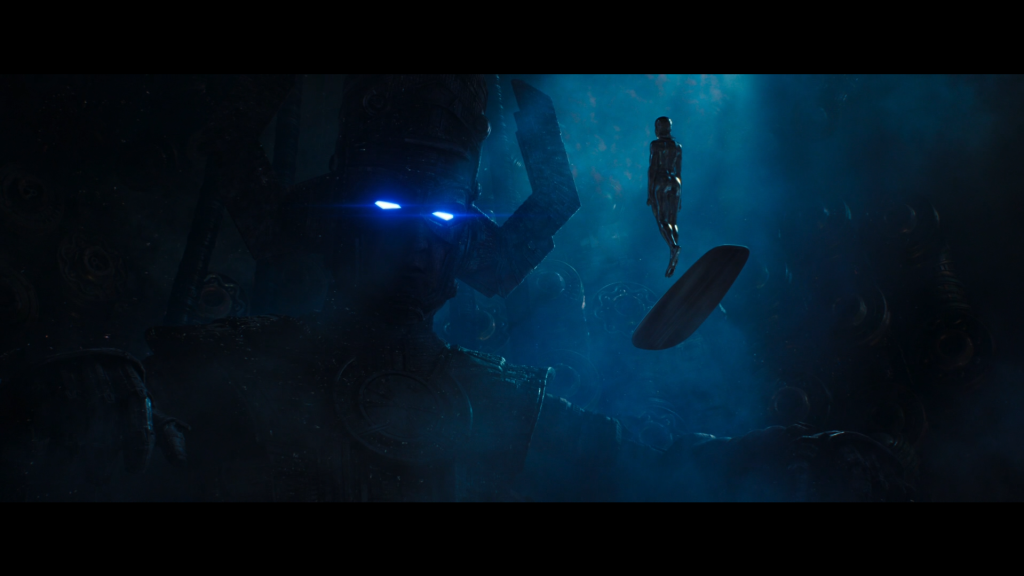
Special Effects and Soundtrack
Visual effects are, for the most part, strong. The Thing is rugged and tactile, though occasional closeups reveal the seams of his digital rendering. Some battle sequences glide, others jolt, as if the film itself is still finding its edges.
Michael Giacchino’s score is jaunty, heroic, and manages to thread the needle between nostalgic and fresh. It’s that kind of signature you’ll catch yourself whistling later. Production design, especially the Baxter Building and Reed’s lab, deserves a standing ovation or at least a long, dreamy pause.
Box Office, Reception and Why It Actually Matters
Despite a dreaded second-weekend dip of 66 percent, First Steps crossed over 500 million dollars worldwide and became the highest-grossing Fantastic Four film to date. Critically, it holds a strong reception at 87 percent on Rotten Tomatoes and is frequently cited as Marvel “getting its mojo back.”
It’s not a flawless movie, but in a post-multiverse fatigue era, it feels like a shot of adrenaline, the kind of well-crafted, identity-driven blockbuster fans hope for but rarely get.
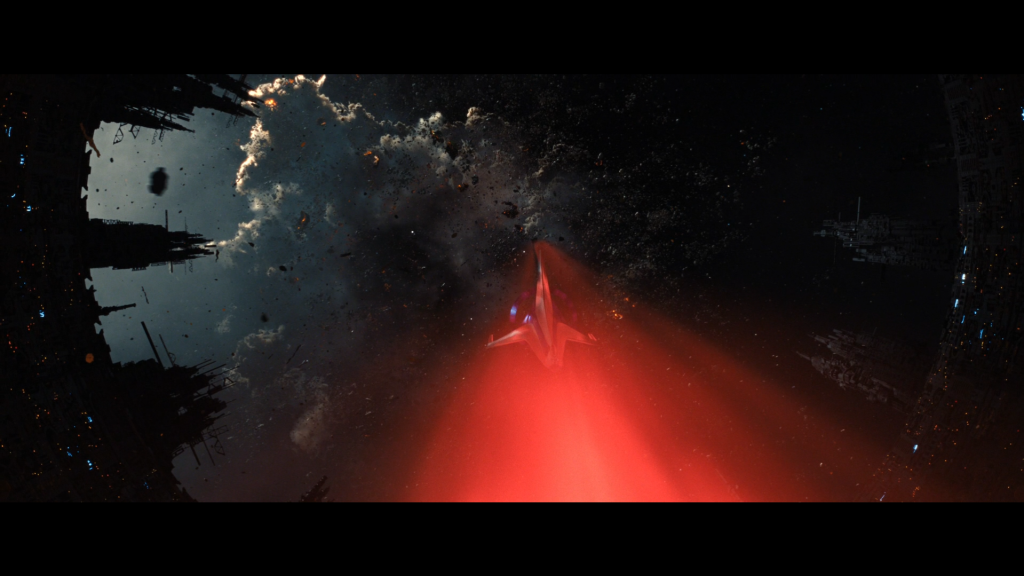
Final Verdict: Clever, Emotional, And Worth The Ride
If First Steps were a dish, it would be a bold fusion: cosmic adrenaline meets family drama, seasoned by mid-century flair and emotional stakes more ambitious than “oops, world ends, cue credits.” It’s not perfect. It stumbles here and there. But it’s the kind of superhero film that, for once, feels like it wants something.
Did it make me care deeply about Reed’s spreadsheet? Almost. Did it make me root for Franklin in the womb? Absolutely. Did it make me laugh, cry, and occasionally squint at a swirl of CGI? You bet.
For a film with “First Steps” in its title, it strides with confidence. The Fantastic Four may finally have broken their adaptation curse and in doing so, given us a cosmic journey that’s as intimate as it is explosive.

